Devastating fire motivated Sonoma County winery’s cofounder to introduce eco-friendly “regenerative” practices.
In Sonoma County’s Alexander Valley subappellation about a 25-minute drive east of Healdsburg Plaza lies 338-acre Bell Mountain Ranch, the hilly estate of Medlock Ames Winery. Founded in 1998 by college chums Chris Medlock James and Ames Morison, the winery, which only produces wines from grapes it grows at the ranch, has been farmed organically since its inception. Until 2020, Morison was the lead winemaker, and though he’s still involved with the wines in both vineyard and cellar, he’s turned his attention to the winery’s impact (also his industry’s) on the environment.
“We’ve been organic for more than two decades, certified starting in 2006,” Morison said while conducting an October 2021 tour of Bell Mountain. “I’ve always felt deep down we were doing the right thing but didn’t give it too much more thought beyond that.” The devastating Kincade Fire of 2019, though, brought a change of perspective. Eleven of 55 vineyard acres perished in the blaze, along with hundreds of trees and other flora, prompting Morison to research agricultural methods with benefits surpassing sustainable and even organic ones.
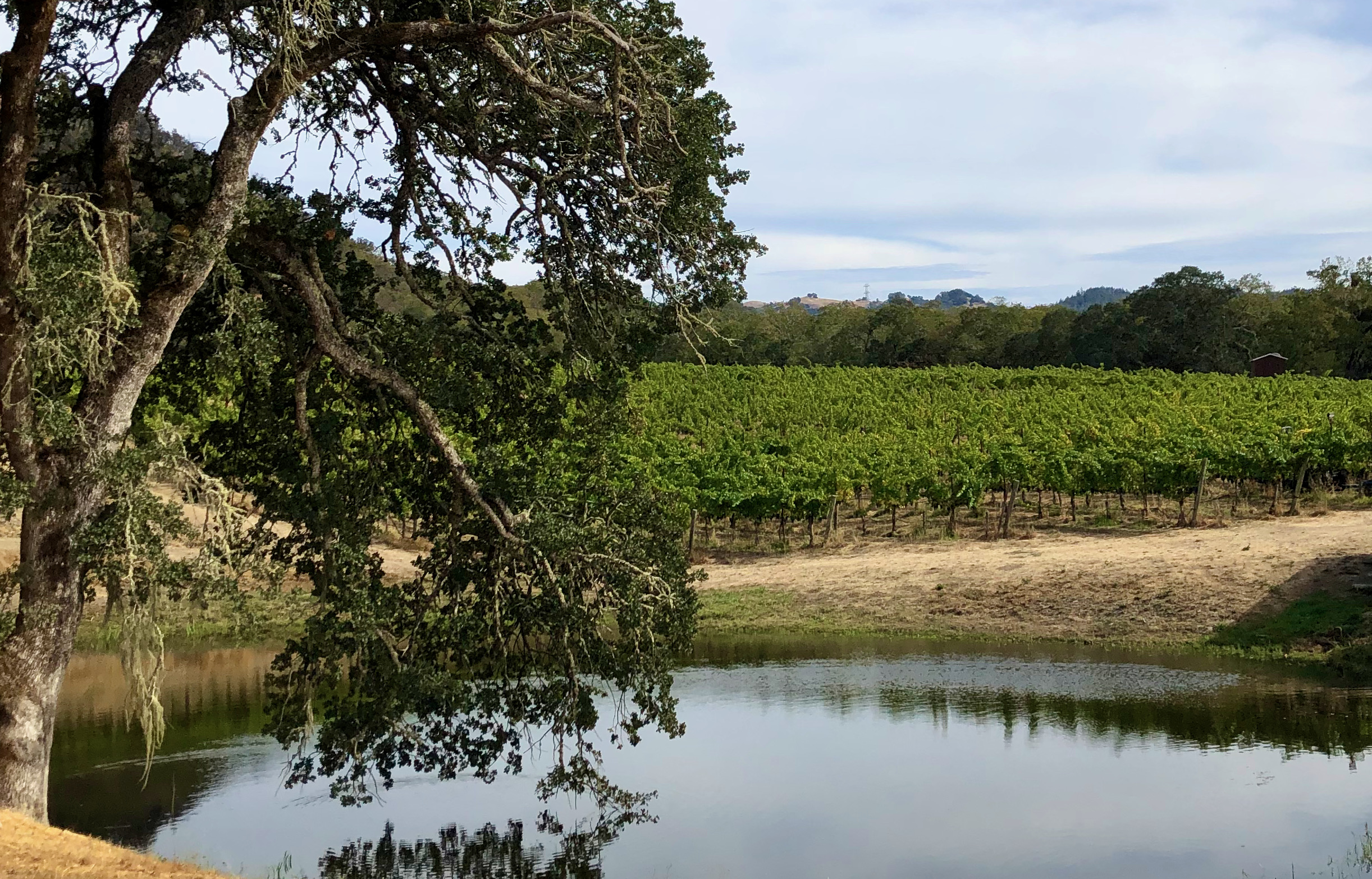
Regenerative Farming
One notion that caught Morison’s attention was regenerative farming. “I was familiar with some of the ideas but hadn’t heard the term,” said Morison. At its core, regenerative farming aims, he continued, “to protect the soil, which acts as a sponge to soak up CO2 from the sky and keep it in the ground where it can enhance soil life and make the vines healthier.”
The winery’s move away from tilling was one consequence of Morison’s research. Tilling is a staple of organic agriculture as a way of controlling weeds without herbicides, but a downside of this approach is that it oxidizes the soil, reducing the organic content. Along with other strategies, dispensing with tilling does the reverse. “For every 1% increase in organic matter in the soil, we can store an extra 25,000 gallons of water per acre,” said Morison, a boon in drought country. “This type of farming can have a tremendous impact.”
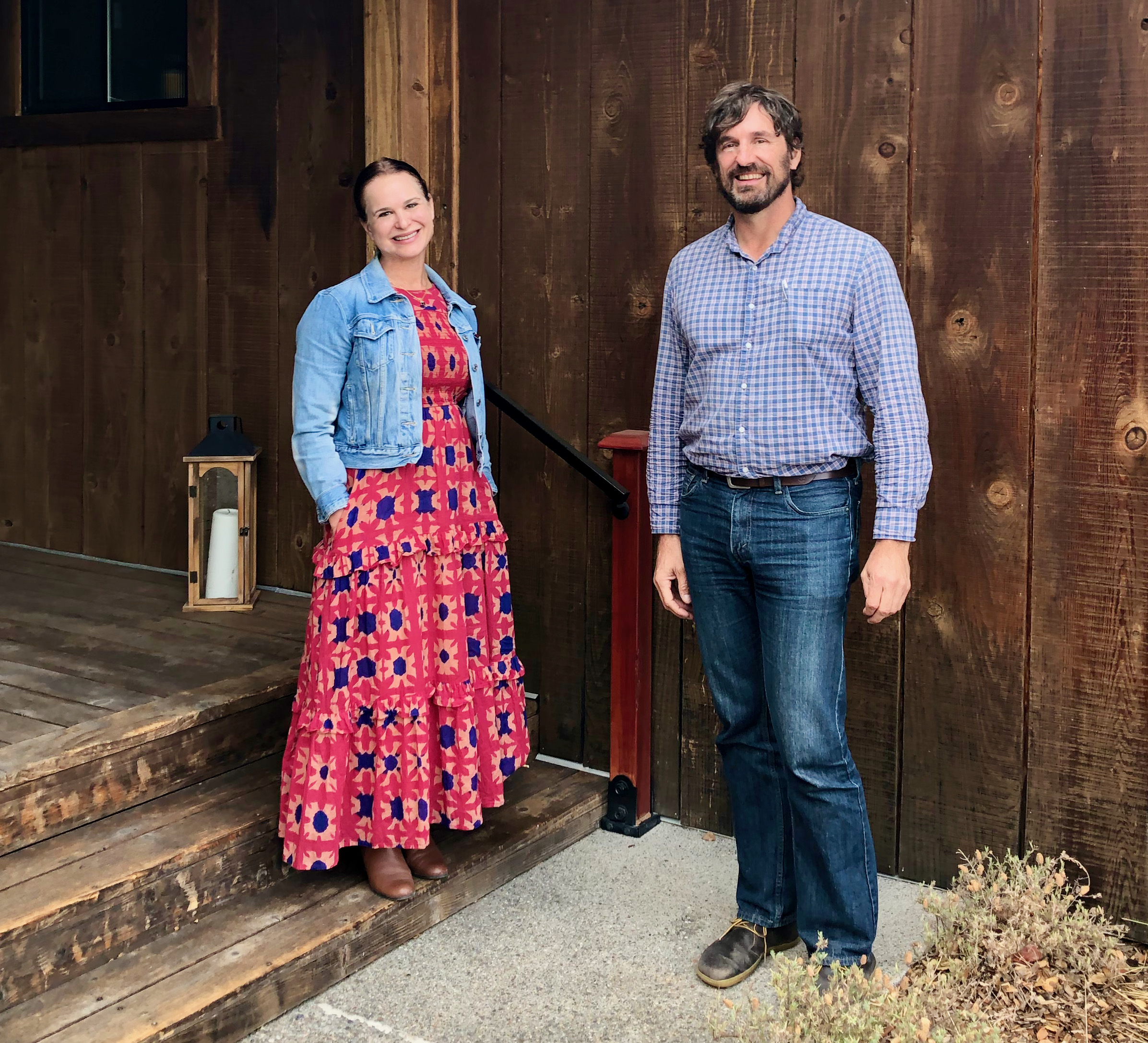
Morison hopes to prove the value of regenerative farming, share the knowledge with other wineries, and learn from their experiences. To that end, said Julie Rothberg, the president of Medlock Ames since 2019, the company has joined the International Wineries for Climate Action, a participant in the United Nations–backed Race To Zero (net carbon emissions).
Listening, Experimenting
The winery’s environmental initiatives are among the topics covered during the engaging Bell Mountain Elevation Tour & Tasting Experience, reserved directly with the winery rather than online. “We’ve found that people are very receptive to our journey,” said Rothberg. “It resonates, and it doesn’t seem like ‘greenwashing’ because we have been farming like this for so long.”
A recent tour began with a splash of 2020 Sauvignon Blanc to sip while walking a bit of the property. The grapes for this wine came from opposite parts of the ranch, one appreciably warmer than the other. The ensuing sit-down tasting, the wines accompanied by well-chosen Northern California cheeses, commenced with the 2019 Newcomb Sauvignon Blanc. Unlike the welcome wine, which fermented primarily in stainless steel, this one, from grapes grown in the ranch’s cooler southern section, was partly aged in oak and acacia barrels. The acacia, said Morison, introduced “a green element, like green cardamom, fig, a little bit of mandarin.”
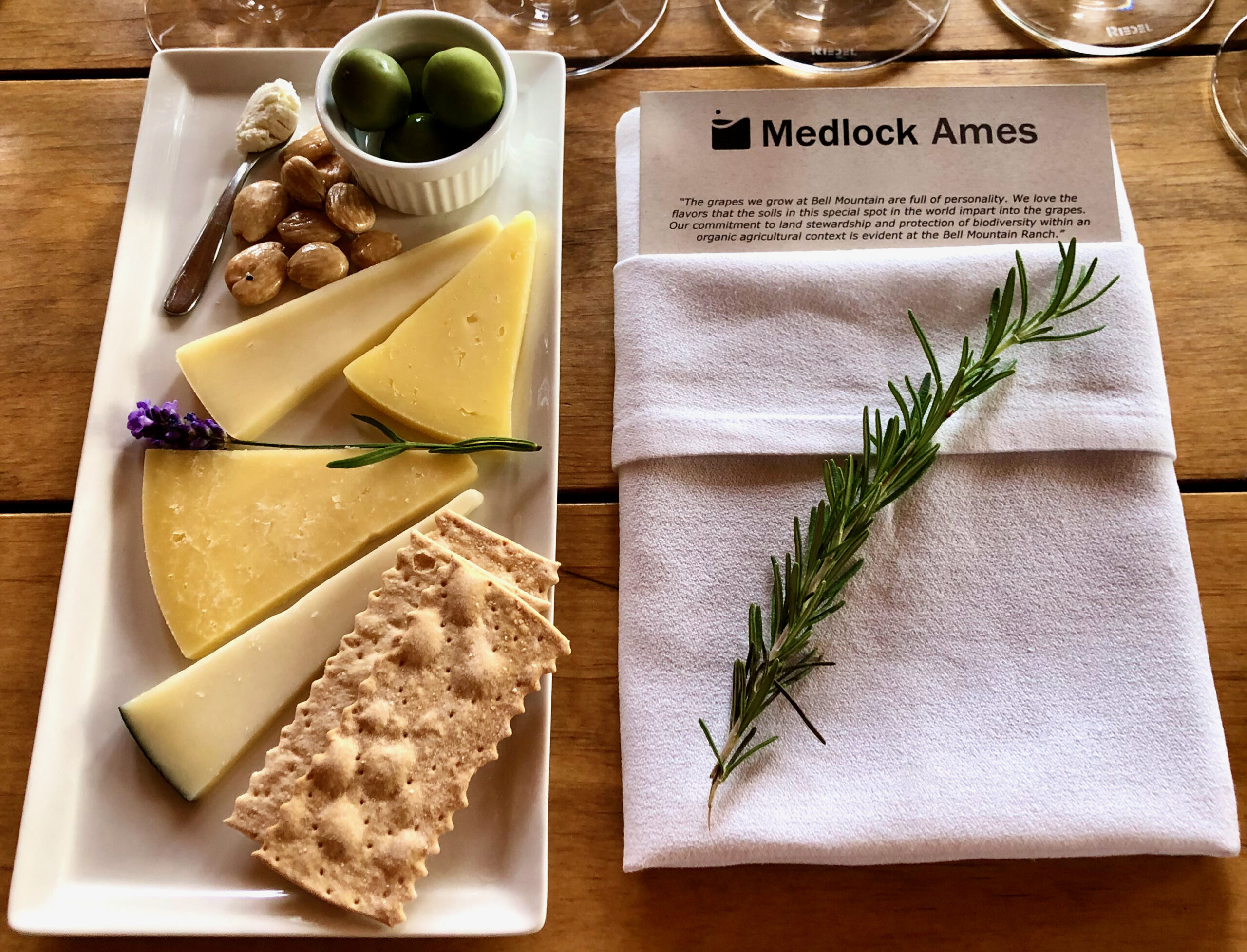
Apple and pear flavors predominated in the next wine, the 2018 Lower Slope Chardonnay, whose grapes grow in the southern sliver of the estate that’s part of the Russian River Valley appellation. One of the Medlock Ames stars, the Chardonnay illustrates Morison’s commitment to excellence and willingness to challenge himself to improve the wines.
“For the longest time, our Chardonnay wasn’t as good as it could be,” he admits. “Around 2013, we did some soul searching, asking why are we making something if we’re not in love with it? So we went back to the drawing board. We tasted Chardonnays from all over the world, then experimented with different oak, fermenting in stainless steel, and using different yeast strains.”
The exercise “changed our philosophy and way of thinking about Chardonnay,” said Morison, adding that the cellar crew instigated the process. “They came to me and said our Chardonnay should be better. It taught me an important lesson, to listen to people and not assume I have all the answers.”
Secret Ingredient
Seven grape types grow on Bell Mountain, but half the vines here are Cabernet Sauvignon. Each of the winery’s three Cabs (in the future there will be four) contains Malbec, which Morison describes as a “secret ingredient” because it grows so well here.
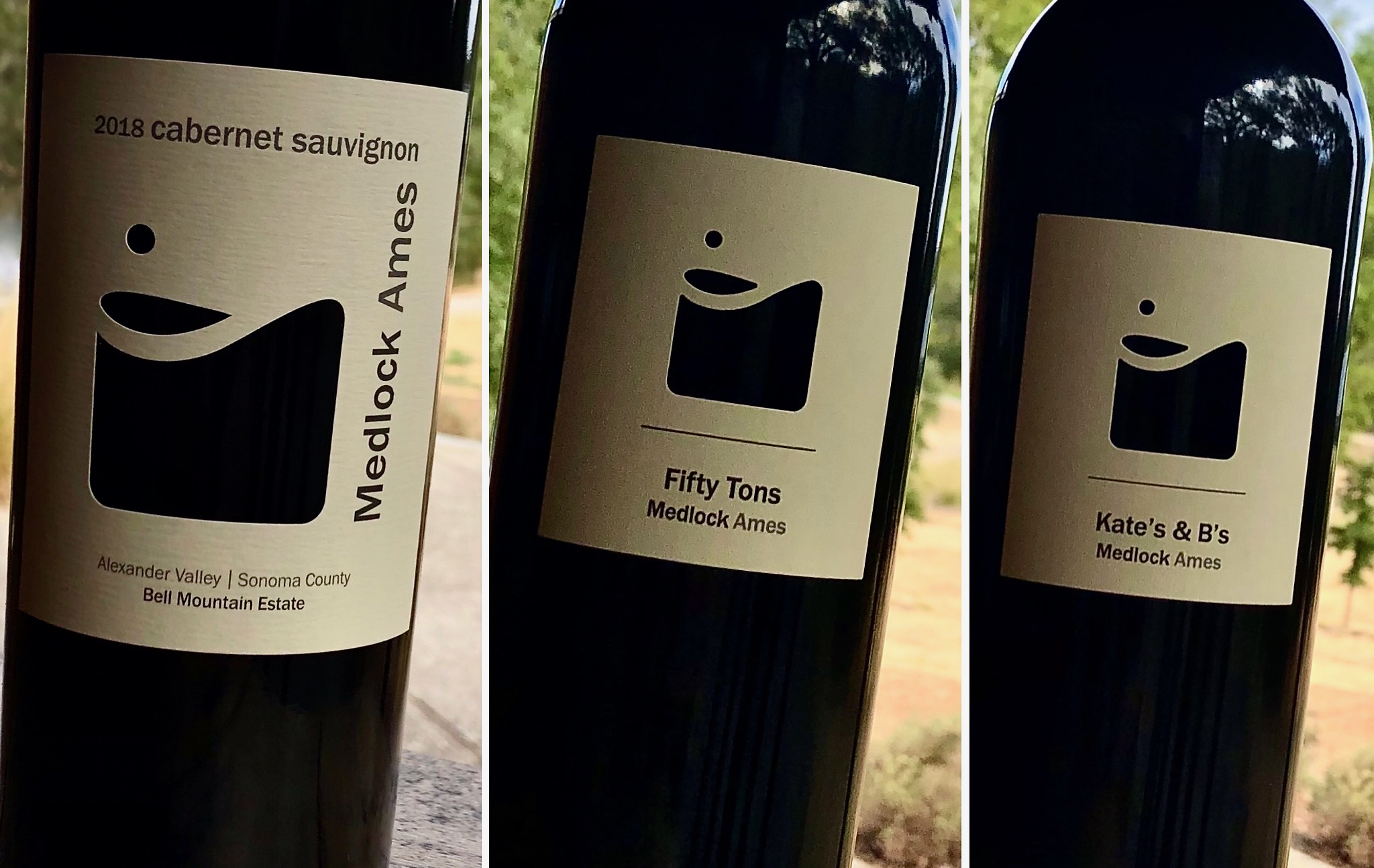
Grapes from nearly all the winery’s 30 Cabernet blocks go into the flagship 2018 Bell Mountain Cabernet Sauvignon. A classic, hearty, have-it-with-a-steak Cab with 6% Petit Verdot and 1% Malbec, it’s noteworthy for its vibrant tannins and earthy undertones.
Two 2017s completed the tasting. Morison describes the Fifty Tons Cabernet, which sees “a little bit of American oak, partly to heighten the contrast between the other two Cabs,” as more about “weight and strength and power, a purer expression of Cabernet.” A 100% Cabernet, it contains more red-fruit flavors than the Bell Mountain wine; despite the absence of the other Bordeaux blending grapes, it came off as complex if, oddly, younger than the 2018 at this point.
The 2018 Bell Mountain Cabernet and the 2017 Kate’s & B’s represent divergent expressions of Bell Mountain Ranch. Unlike the former wine, the grapes for Kate’s and B’s come from two steep blocks, named for the cofounders’ wives, that early on produced distinctive grapes. Aged in 75% new French oak, the rest neutral (previously used), it was the day’s delight, a wine of power and grace with a memorable finish.
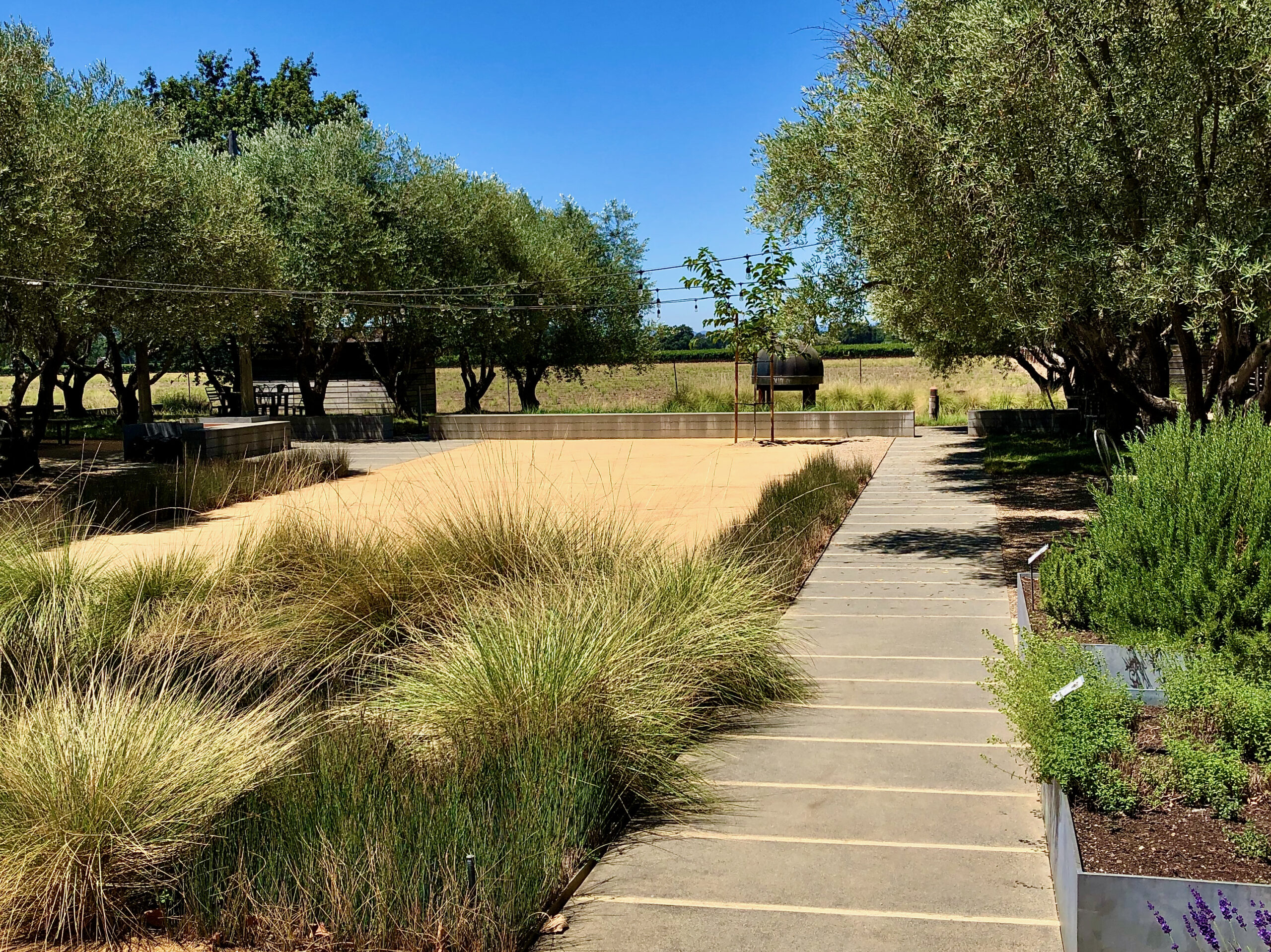
Tasting Options
Medlock Ames operates a tasting room on Alexander Valley Road at Highway 128, but the best way to learn about the winery’s earth-friendly practices is up on Bell Mountain. In addition to the Bell Mountain Vineyard Tasting of estate wines, there’s the Bell Mountain Immersive Sound Experience, a self-guided tour a local artist developed. Morison provides some of the audio tour’s narration.
Why go: scenic Bell Mountain Ranch; commitment to earth-friendly farming; distinctive Alexander Valley Cabs
Info
13414 Chalk Hill Rd., Healdsburg 95448
More About Sonoma County
Healdsburg Restaurants Cheat Sheet
Sonoma County Basics
Sonoma Pinot Noir Day Trip
Sonoma County Vineyard Walks
This story originally appeared in late 2021. It was fact-checked and lightly updated in late 2023.
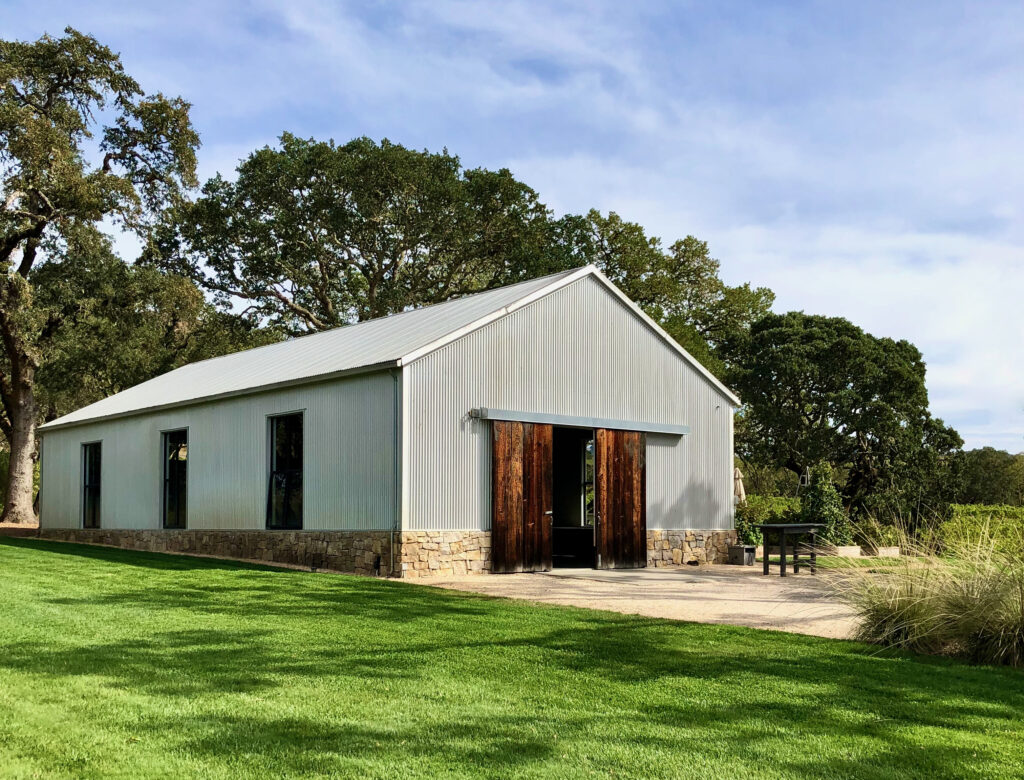
Pingback: Healdsburg Restaurants Cheat Sheet – Daniel Mangin
Pingback: Medlock Ames Newcomb Sauvignon Blanc Impresses with Purity of Expression – Daniel Mangin
Pingback: Arista Winery – Daniel Mangin
Pingback: STORY INDEX BY REGION – Daniel Mangin